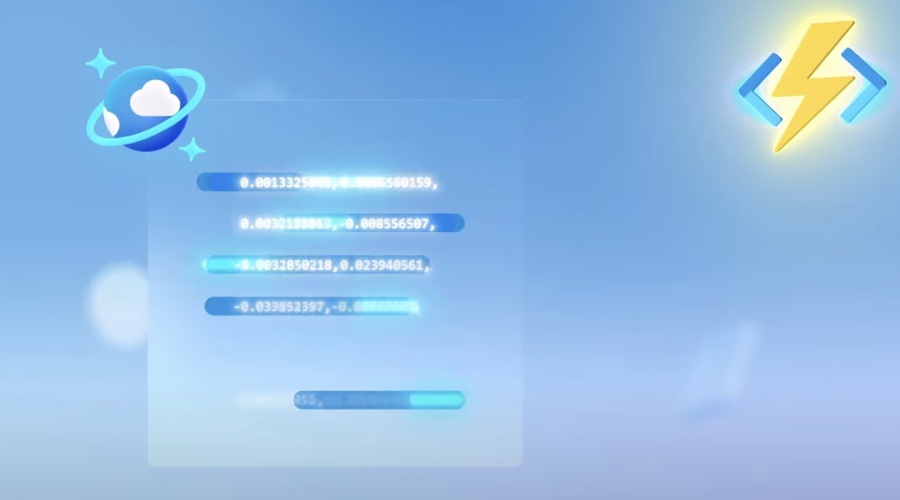
What is the database behind ChatGPT?
Software Development Redmond, Washington
Boost AI apps with Azure Cosmos DB: Perfect for ChatGPT with limitless scalability and real-time efficiency
Key insights
- Azure Cosmos DB supports AI-driven applications by seamlessly integrating with models like ChatGPT for real-time operational efficiency and limitless scalability.
- Uses a built-in vector search engine and supports multiple models optimizing for immediate data retrieval, enabling the building of advanced solutions at any scale.
- Kirill Gavrylyuk discusses how Azure Cosmos DB can enhance performance and cost-effectiveness for apps of any size, from millions of global users to smaller-scale projects.
- Highlights include automatic scaling, vector indexing, and search capabilities, and the ability to run smaller apps serverless with auto-scaling features.
- Demonstrations and examples illustrate how Azure Cosmos DB facilitates building applications, including a copilot-style app that leverages vectorized data for efficiency.
The utilization of Azure Cosmos DB for powering AI-driven applications, such as those incorporating large language models like ChatGPT, marks a significant advancement in the realm of database technology. This achievement is made possible through Azure Cosmos DB's profound integration capabilities, exceptional real-time operational efficiency, and its scalability which knows no bounds. Further enhancing its appeal, Azure Cosmos DB comes equipped with a state-of-the-art vector search engine alongside multi-model support, ensuring optimized just-in-time data retrieval. Consequently, developers are empowered to create groundbreaking solutions, regardless of the scale. A noteworthy aspect of Azure Cosmos DB, as highlighted by Kirill Gavrylyuk, lies in its ability to significantly boost performance and cost efficiency for a diverse range of applications, from those catering to millions of users worldwide to more modest, smaller-scale projects.
The platform's sophisticated features, such as automatic scaling, vector indexing, and the provision to run smaller applications in a serverless manner with auto-scaling capabilities, set the stage for a new era of app development. These innovations underscore the platform’s commitment to facilitating the creation of cutting-edge, copilot-style applications that leverage vectorized data to achieve unparalleled levels of efficiency.

What powers the database behind ChatGPT? Azure Cosmos DB steps up as the backbone for AI-driven applications, allowing for seamless integration with complex models like ChatGPT. This integration aids in achieving real-time operational efficiency and scalability without limits. Azure Cosmos DB's unique vector search engine and its capacity to handle multiple models make it an excellent choice for modern solution builders.
Kirill Gavrylyuk, the General Manager for the Azure Cosmos DB team, sat down with Jeremy Chapman to discuss how Azure Cosmos DB can boost both performance and cost-efficiency for a variety of applications. From applications handling millions of global users to more modest projects, Azure Cosmos DB is designed to adapt to diverse needs with ease.
The conversation covered several key aspects of utilizing Azure Cosmos DB for AI applications, including its ability to meet real-time data access demands and its auto-scaling capabilities. This discussion reveals Azure Cosmos DB's role in supporting "copilot"-style applications through efficient management of vectorized data and demonstrating its prowess in a Jupyter notebook demo.
Additionally, important features like vector indexing and search in Azure Cosmos DB were highlighted, alongside insights into building small "copilot"-style applications. The discussions concluded with the benefits of running smaller applications in a serverless environment, setting maximum throughput thresholds, and utilizing Azure Cosmos DB's auto-scaling feature to optimize performance and cost.
Exploring the Role of Modern Databases in AI Application Development
Modern application development, especially in the AI domain, demands databases that can not only handle vast amounts of data but also process and retrieve it efficiently. Azure Cosmos DB, with its multi-model support and built-in vector search engine, represents a significant leap forward in database technology.
Its ability to scale automatically and integrate seamlessly with AI models like ChatGPT makes it an indispensable tool for developers. Moreover, Azure Cosmos DB's capacity to optimize data retrieval in real-time means applications can operate more dynamically and intelligently than ever before.
The fact that Azure Cosmos DB is adaptable for both large-scale and smaller applications further underscores its versatility. Whether managing global user databases or powering modest in-house projects, Azure Cosmos DB provides a robust, scalable solution.
With features like vector indexing and the flexibility to set throughput thresholds, Azure Cosmos DB brings precision and efficiency to data management. Its support for serverless applications opens new possibilities for optimizing resource usage and cost.
In essence, databases like Azure Cosmos DB play a pivotal role in the evolution of application development, enabling more sophisticated and intelligent solutions. As technologies like AI continue to advance, having a powerful, scalable database will remain crucial for developers looking to push the boundaries of what's possible.

People also ask
Where does ChatGPT database come from?
What is the database up to in ChatGPT?
As per the recent updates announced by Sam Altman, CEO of OpenAI, during the company’s inaugural developer conference, ChatGPT has expanded its database to include information and developments up to April 2023. Initially, at its launch in November 2022, the AI's knowledge was confined to data available until September 2021 due to constraints in its training process.What dataset is ChatGPT trained on?
ChatGPT has been trained on a comprehensive and colossal text dataset, amounting to approximately 570GB. This dataset includes a variety of sources such as web pages, books, and more. The training has equipped GPT-3 to excel at a multitude of language-related tasks, including but not limited to translation, summarization, and question-answering, providing a versatile tool for users.Which database does ChatGPT use?
Predominantly, ChatGPT utilizes NoSQL database technology to manage its operations. NoSQL databases are adept at handling vast amounts of unstructured or semi-structured data. This capability aligns perfectly with the nature of the data ChatGPT processes, enabling efficient performance and versatility in data management for the AI system.
Keywords
ChatGPT database, ChatGPT technology, AI database technology, OpenAI database, ChatGPT backend, Artificial Intelligence database, ChatGPT infrastructure, Natural Language Processing database